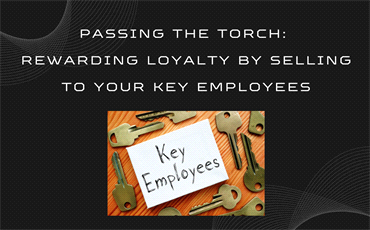Don't Be Fooled By A Business Seller's Claims, Due Diligence Is Critical
Are you contemplating buying a small business to become a small business owner? Or are you looking to add another company to the one you already have? If so, you’ll need to understand what due diligence is and how it affects your decision to buy.
Don't Be Fooled by a Business Seller's Claims, Due Diligence is Critical
Are you contemplating buying a small business to become a small business owner? Or are you looking to add another company to the one you already have? If so, you’ll need to understand what due diligence is and how it affects your decision to buy.
The Meaning of Due Diligence
Due diligence is where you investigate a business that you’re interested in purchasing. You should conduct due diligence before going through the final stage of the transaction to know if purchasing the business will be worth it.
You should look at the important components of a business when performing due diligence. Some of these issues include the financial risks taken by the business, profits, legal problems and other things that will cause you not to buy such as will you enjoy owning this business? You must examine the business’ past financial records and future projections.
How Due Diligence is Done
Doing due diligence for a small business takes time to complete. This is so because the process involves going through the company’s financial records, cross-referencing and ensuring that everything is as stated.
However, as a business buyer, you should not conduct due diligence by yourself. You should hire professionals such as an accountant and lawyer with experience in the field. You should also be a part of the team by looking over the documents, but allow the experts to do their jobs before you make a purchase. Consider doing this because, as experts, they will find important information that you would’ve missed.
You should have a commitment with the seller in the form of a Purchase Agreement or Letter of Intent to start the due diligence process.
The next step is to go through your findings with your team to ensure all critical parts are covered. Your teams will have a checklist of their own, but it doesn’t hurt to set up your own list.
A Checklist for Due Diligence
When you’re conducting due diligence, there are several aspects about the prospective company that you should take a look at. Below, you will find issues that you should be on the lookout for when conducting due diligence.
• Financial Due Diligence
Financial due diligence, also known as due diligence for accounting places the focus on the economic portion of the prospective business. The emphasis is placed on assets, accounts, liabilities, tax, historical trends, amongst other things.
You should look at the business’ past financial data such as balance sheet, income statements and cash flow statements. You should also pay close attention to the accounts receivables, gross profit, rate of return on the products offered and get an understanding of the company’s inventory history.
• Legal Aspects of Due Diligence
Legal due diligence shows the legal aspects of a business, such as legal contracts and any other document that can have hidden risks for a lawsuit. Some contracts that you should pay close attention to are leases, distribution and purchase agreements, business sales contracts, articles of incorporation, business registration, copyrights, trademarks and employee’s agreements.
• Due Diligence for Operations
Operational due diligence comes in when you want to do a full investigation of the business to actually see how it operates. Some operations include the business market, the model and its competitors.
You should be able to identify the customer patterns, learn how marketing for the business is done, run a market analysis, get feedback from people, do research to find trends in the market and study the competitors.
Repercussions of not Conducting Due Diligence
You may end up making a mistake with purchasing a business without doing your due diligence. The business owner may try to fudge the numbers to try to get you to buy. If you don’t do your due diligence, you may end up buying a business that isn’t in good financial standings.
Purchasing a terrible business will cost you money because that business or product may cause you to spend a lot of money to overhaul it. You may also inherit bad debts and lawsuits.
Conclusion
Due diligence is important when you plan on purchasing a business or product. It can keep you from spending your money on something that will eventually leave you at a loss.
Recent articles for you
Larry Goldstein of First Choice Business Brokers
License: NV RE S.0188852
Permit: Business Broker Permit BUSB.0007059
Navigation Links
Want to receive new business listing alerts by email?
The World's Authority in Business Sales
© 2023 Larry Goldstein of First Choice Business Brokers | Each office is independently owned and operated. Privacy Policy






